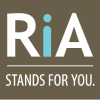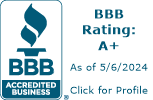Digitize and Declutter!
By Robert Siegmann
If you’ve experienced some recently hot days of summer as we have in Cincinnati, you may have opted to do some overdue Spring cleaning this summer. Today, I’ll focus primarily on your home office and records, such as excess paper, computers and even that old Apple device sitting in your drawer. The paper item can be a bit daunting if you are unsure what to keep and what to shred, so here’s a few words of wisdom leading up to our community Shredding event.
Document delivery – email versus snail mail.
If you’re ready to slow down the monthly intake of physical paper statements for your accounts or bills in the mail, you might consider signing up for e-delivery instead. This really has come of age and the benefits of saving time and energy opening and sorting mail and having to dispose of it is well worth it. If you needed that paper statement to remind you to make a payment, you might consider auto payments, or a monthly reminder on your phone or productivity software such as Microsoft Outlook.
Document retention
We all know there are some documents we should keep on hand related to tax, investment, insurance, and legal documentation, but sometimes the specifics can be tough to remember. Here’s a quick list of the most common situations where you’ll need to keep documentation. Please see this checklist for a detailed list.
Income tax returns
Law requires you keep a minimum of three years of state and federal tax returns and supporting documentation on file. The IRS recommends six years, so that’s our recommendation to make any potential audit easier to sail through. Supporting documentation includes records that prove any income, deductions (including medical expenses), or credits claimed (W-2, 1099, end-of-year statements from banks and investment accounts).
Bank, Investment and Credit Card account
Keep a year of statements on file (or at least know you have access to these online). If you are keeping these items digitally, consider keeping for several years.
Retirement accounts
Maintain documentation on any contributions, withdrawals, and conversions for the same time period as your taxes (6 years), including any non-deductible traditional IRA contributions that required you to file Form 8606 as part of a back-door Roth contribution. In terms of statements, retain only the year end statements for 6 or more years.
Debts (Mortgage, Car or Student loans, etc.)
Maintain the original loan documents until the loan is paid off. Once the loan is paid off, keep documentation proving that the loan has been paid in full.
Property (automobiles, real estate). Consider keeping any deeds, titles, settlement statements, or bills of sale until you sell the property. Keep documentation showing purchase-related fees that were capitalized until you sell the property.
Insurance
Maintain the original policy and any annual statement for the life of the policy. For policies such as home or auto, only maintain the most recent annual declaration page.
Estate plan
Permanently retain copies of your Will, Powers of Attorney (General and Healthcare), Living Will or Healthcare Directive, Trust(s) and beneficiary designations until an update occurs. Consider giving copies to your alternate agents and successor trustee.
Document disposal
Please remember to shred any documentation that contains sensitive personal information, such as your Social Security or account numbers or any other private matter. A personal shredder can keep up if you are consistent with shredding on a regular basis, OR you can Google for a local shredding event when you do an annual purge. Total Wealth Planning typically offers a summer shredding event – details can be found at www.twpteam.com/shredday.
Document storage
To reduce your paperwork, try storing these must-keep documents in your secure cloud drive with a series of files and folders. If you choose to keep everything on your local personal computer, it will be paramount to back up your files and also have security and firewall protection in place.
Password organization & safe keeping
As your life continues to become more digital, improving your password management becomes critical to create, remember and even share passwords with trusted family or advisors. I recommend using a cloud-based password manager like LastPass where you can store all your passwords in one place and only need to remember the “master” password to access them. LastPass has a random password generator to help you create complex passwords that are more difficult to hack. This also makes it feasible to use many different passwords for different sites. It is perilous to use the same password (or even very few) across many different websites because every company and every site will be hacked at some point and your password will be out there. So, a secure vault like Lastpass (the last password you ever need to remember) enables you to drastically improve how to manage passwords. Learn more at www.lastpass.com
Digitize your photos or other media
Does your paperwork include old family photos you’ve been meaning to digitize? Try sending them to a digitizing service like Costco, Scanmyphotos.com, Legacy Box or many others. These companies will scan your photos, change video tapes and reels to shareable digital content to keep on your computer or share online, whichever you choose. This may be a few hundred $ investment, but having these irreplaceable memories professionally preserved is priceless in my opinion. I suggest doing this sooner than later since the originals do fade with time, or worse, they are destroyed by fire, water, or kids (😊). Again, once you have these important family memories in a digital format, you are able to easily share copies with loved ones. For a bonus round, find somebody to make slideshows, or condense hours of raw family footage into very entertaining watchable videos to share during the next family get together.
Inform your family
Make sure your trusted family knows where you keep your important documents and what your “master” password is in case something happens to you. Having these conversations ahead of time will help alleviate the stress on your loved ones of not knowing what to do or where to find things.
About the author
Rob Siegmann is a partner and chief operating officer of Total Wealth Planning, a fee-only fiduciary financial planning firm in Cincinnati (Blue Ash), Ohio. He is often quoted in industry publications such as The Cincinnati Business Courier, Wall Street Journal, Yahoo finance, Financial Planning Magazine, Cincinnati Enquirer as well as others. Rob is grateful to serve others, including his team of CERTIFIED FINANCIAL PLANNER™ practitioners and the clients they serve, so they can live their greatest life through well informed and prudent financial decisions. Rob can be reached at rsiegmann@twpteam.com.







